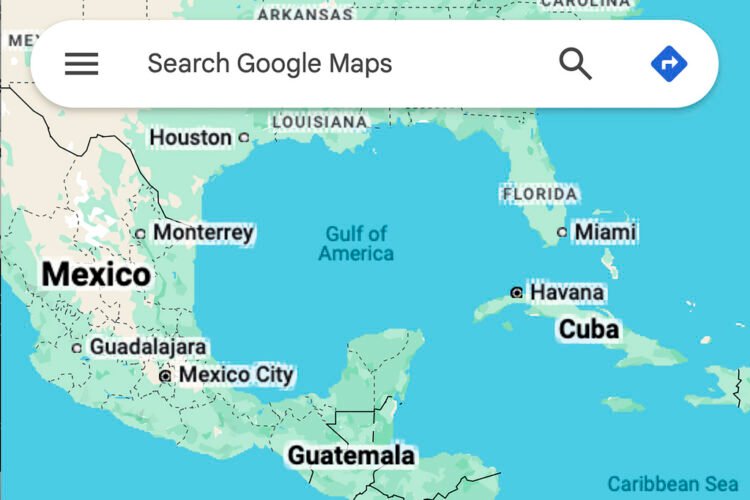WASHINGTON — In a contentious move reflecting the deepening culture wars in U.S. politics, House Republicans narrowly passed a bill on Thursday to officially rename the Gulf of Mexico as the “Gulf of America.” The legislation, championed by Trump ally Rep. Marjorie Taylor Greene (R-Ga.), passed 211-206 along mostly party lines.
The bill directs federal agencies to update all documents, maps, and references to reflect the new nomenclature. While it remains uncertain whether the Democratic-controlled Senate will take up the measure, it symbolically aligns with an executive order signed by President Donald Trump on his first day in office.
“The Gulf of America is one of the most important things we can do this Congress,” Greene said. “It’s about restoring national pride and reclaiming our geographic identity.”
Supporters argue the name “Gulf of Mexico” harkens back to colonial-era Spanish influence over the region — an era they claim no longer reflects the United States’ dominant cultural and economic presence in the area.
“In short, this legislation recognizes the strategic influence America has over this geography,” said Rep. Virginia Foxx (R-N.C.). “It’s time our maps reflected that reality.”
Yet Democrats lambasted the bill as an unserious political stunt that wastes time and taxpayer dollars.
“It’s easy to mock this legislation because it’s so inane and embarrassing — and we have,” said Rep. Mary Gay Scanlon (D-Pa.). “But its very existence is a reminder of the priorities this House leadership has set.”
House Minority Leader Hakeem Jeffries (D-N.Y.) called on Democrats to oppose what he labeled a “silly, small-minded and sycophantic” initiative, while Rep. George Latimer (D-N.Y.) argued the bill ignores Americans’ economic struggles.
“No one is clamoring for a newly named body of water,” Latimer said on the House floor. “They want lower grocery bills — not symbolic gestures.”
The Gulf of Mexico has borne that name for over four centuries, with deep-rooted historical, cultural, and international significance. Trump’s executive order has no binding effect outside the U.S., and neighboring countries, including Mexico, are under no obligation to adopt the change.
The Associated Press, which continues to refer to the body of water by its historical name, recently won a federal case against the Trump administration after being barred from covering presidential events. The judge ruled that the government could not punish the news agency for its editorial decisions, citing First Amendment protections.
While the House GOP defended the measure as patriotic and symbolic, critics warn it is a distraction from substantive governance.
“The American people are footing the bill to secure the Gulf of America,” said House Republican Conference Chair Lisa McClain (R-Mich.). “It’s only right that it’s named appropriately.”
But to Democrats, that rationale falls flat. “This is not what Americans sent us here to do,” said Rep. Latimer. “Let’s focus on policies that actually help working families.”
Whether the bill becomes law or not, it has already ignited another round of partisan debate over what defines national pride — and how far lawmakers should go to assert it.

 English
English



























































